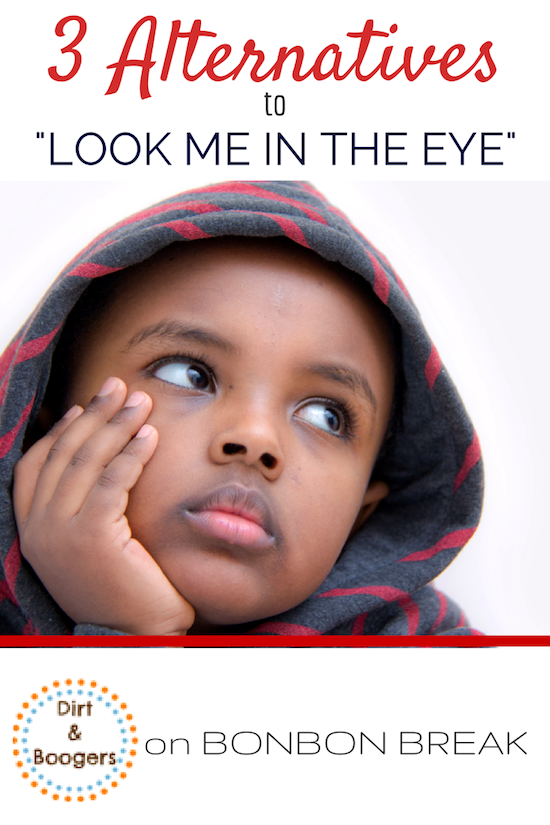Prepping Your Kid for the Dark Side of College

Trigger Alert: Discussion of sexual assault
What would you do if you found out your son was posting images of naked women whom he and his friends had sex with? Perhaps even non-consensual sex with? What would you do if you found out your daughter was at a party, and frat boys undressed her unknowingly, photographed her, and posted it on the internet?
Unfortunately, the mothers of the Penn State fraternity, Kappa Delta Rho, and its victims, are faced with this question right now. An investigation is underway as police received a tip from a former member of KDR about a Facebook group where the fraternity posted images of drug deals and nude (some unconscious) women. This may seem like an extreme act of a few lost souls, but as one female Penn State student puts it, “This is hardly an isolated incident.” Some members of Greek life at Penn State are angry, but one member of KDR doesn’t even realize the magnitude of their crimes, as he reports that all fraternities do this, and there are many websites to prove that, “It was an entirely satirical group and it was funny to some extent. Some of the stuff, yeah, it’s raunchy stuff, as you would expect from a bunch of college-aged guys,” he said. “But, I mean, you could go on any one of hundreds and thousands of different sites to access the same kind of stuff and obviously a lot worse and a lot more explicit.”
So what is going on?
There is nothing new about fraternity debauchery. However, now that we have smart phones, it is much harder to keep that debauchery a secret. Nowadays, you would call the nonconsensual posting of nude photos ‘revenge porn’ which is typically referred to as images or videos of nudity and/or sex that were consensually taken but not consensually distributed (1). However, KDR non-consensually posted non-consensual nude photos. Which is even more disturbing, right?
Even though revenge porn website enthusiasts swear their motivation is nothing but an opportunity ‘to look at real naked women’, in reality, the act of uploading a nude picture to punish a woman for leaving you or to boast about you %#$*ing her, is less of an act of sexual expression and more similar to the criminal behavior of stalking and harassment (2). It is clear that non-consensual distribution of sexual imagery and videos is intended to humiliate the victim. With that in mind, we should amend stalking and harassment legislation to reflect our new cyber-reality. Just because the abusive acts are happening in cyberspace doesn’t mean the experience of being humiliated and harassed by an ex is any less terrifying.
Why would a group of “good guys” post nude images of criminal behavior on social media?
Members of our (I’m a sex educator and doctoral candidate at Penn State) community are ‘shocked’. These guys participate in THON! So, sexually assaulting and harassing is fine as long as you also raise money for charity? Please. Let’s look at the white, heterosexual, male privilege here (3). You commit a crime, get a good lawyer, you’ll likely be fine. It’s difficult to imagine that a black fraternity would get away with posting photos of drug deals. Another recent example of the privilege of white fraternities was the Oklahoma incident where racism reared its ugly head. I’m not saying all fraternities are sexist or racist, but the very structure of them creates the environment for sexist and racist ideology to breed, but more importantly, to go unchecked. Even the KDR member admits this happens all the time, unknowingly acknowledging his privilege, “It is shameful to see the self-righteousness that has sprung from the woodworks in response to the alleged Penn State fraternity “scandal.” Here’s a quick reality check: everyone — from Bill Clinton to your grandfather to every Greek organization in the nation does the same old stuff, just as they have been for the entirety of human history”, he claims. “It’s not anyone else’s business, pretty much. It’s an inter-fraternity thing and that’s that.”
Fraternities are a hierarchical institution, where those in power choose new members, based on their ability to comply as part of a group. This system makes it highly unlikely that a fraternity will have a contrarian, or someone to say, “Hey. This isn’t cool. Let’s stop.” Something known as ‘group think’ (4), likely made the criminal behaviors of a few possible, because of the compliant behaviors of the rest. Especially online. When individuals enter virtual spaces (online groups, online games, etc.) they take on the identity of the group for the time being (5). So, if guys are posting nude images and other guys are making harassing comments, ‘good guys’ will likely do the same, even though they wouldn’t say those things in real life. This is why we need to teach our kids (especially if they are the popular kids) to speak up when they know something isn’t right, in person and online.
We know that at least 1 in 5 women have experienced sexual assault (6), which is daunting to say the least. This means many of you reading this right now have a son who has sexually assaulted someone and 1 in 5 of you have a daughter who will experience sexual assault before she graduates from college.
What can parents do before their kids go to college to try to prevent this type of behavior?
- Talk about consent early and often. You can have these conversations with toddlers! Children of all ages can understand that no one touches them and they don’t touch someone else without asking first. Teens can be taught to tell a partner, “I really want to kiss you right now.” And wait for a reply before actually kissing, and so on.
- Talk about gender, race, and power early and often. Your white, heterosexual, son needs to know that his experience of the world is that of privilege. He needs to know that it will be more difficult for him to keep his behavior in check because he doesn’t have the cultural cues (that he will be called a slut, that he will be arrested or shot by police, that he will be bullied) that other genders, races, and sexualities experience that make them think about their behavior before they engage in it for better or for worse.
- Talk about sexual behavior early and often. It’s important to acknowledge that sex is normal and everyone experiences it differently. Your communicating about sex will teach your kids that it is ok to talk with a partner about sex, which increases the chance that they will have a consensual experience and perhaps even successfully use a condom.
- Talk about porn, sexting, and the brain. Boys and girls are getting their sex-ed from porn. As you can imagine, that is not good. The way the brain reacts to porn is different than the way the brain reacts to sex. Porn is a powerful physiological enforcer. Which is likely why the KDR member didn’t find much harm in what his brothers were doing. Maybe he was masturbating to too much revenge porn and it changed the way he thinks about it? Hard to say.
Questions to ask yourself about the college your kid attends/will attend
- What is the school’s policy on sexual assault? It is difficult to prosecute cases of sexual assault through the traditional legal system. However, most universities have policies that would expel the perpetrator, especially if the victim gets a rape kit and contacts a victim advocate immediately. Even though he might not see time in jail, he at least won’t be on campus anymore.
- Do the fraternities have their own housing? Do the sororities have their own housing? What jurisdiction does the University have over the Greek system? Obviously, because of male privilege, men are the powerful ones at parties. However, if women have their own parties, it can be a much safer environment for them as they can leverage more on their own turf. For example, Penn State sororities do not have their own houses. So all Penn State Greek parties have to occur at frat houses by default. It’s better if sororities have their own houses.
- Does the university mandate sexual assault and binge drinking education? Is that education evidence-based (actually works)? Some research shows that education can transform the behavior of these groups and provide knowledge of how to be a bystander.
Questions to ask your kids before they head to college
- What would you do if someone was taking someone else into a room and that person was clearly intoxicated? Correct answer: I would say, “Nah, dude. She’s way too drunk. You don’t want to go there.” And then I would help her find her friends, or call her a cab.
- What would you do if one of your friends shared a nude photo of someone? What if that nude photo was of your sister or your friend? If your reactions were different, why? Correct answer: I would delete the photo and tell the distributor “that is messed up”.
- How would you know that a potential partner is able and willing to consent to sexual behavior? Correct answer: They would be sober, and able to say “I really want to have sex with you right now. I really want to kiss you right now.” If someone is drunk and flirting, that doesn’t mean a thing.
- What do you think would happen to you if you had sex with someone who was blacked out? Correct answer: I could get suspended or expelled from school, my sports teams, or even see some jail time.
- When is it OK to take a picture of someone else? Correct answer: When they have their clothes ON.
You know our culture is a rape culture, when men can commit crimes, photograph those crimes, post those photos and still get away with it because “boys will be boys”. Is this the world we live in? If so, we should be very angry. We should not put up with this anymore. We can demand change here.
References
- Citron, D. K., & Franks, M. A. (2014). Criminalizing revenge porn. Wake Forest Law Review, 49, 345.
- Davis, K. E., Ace, A., & Andra, M. (2000). Stalking perpetrators and psychological maltreatment of partners: Anger-jealousy, attachment insecurity, need for control, and break-up context. Violence and Victims, 15, 407-425.
- Rothenberg, P. S. (Ed.). (2004). White privilege: Essential readings on the other side of racism. Macmillan.
- Packer, D. J. (2009). Avoiding groupthink whereas weakly identified members remain silent, strongly identified members’ dissent about collective problems. Psychological Science, 20, 546-548.
- Sundar, S. S., Jia, H., Waddell, T. F., & Huang, Y. (2015). Toward a Theory of Interactive Media Effects (TIME) Four Models for Explaining How Interface. The Handbook of Communication Technology, 47–86.
- The Centers for Disease Control and Prevention, 2012.
RESOURCES:
- RAINN – Rape, Abuse, Incest, National Network
- SAFER Campus – Students Active For Ending Rape
- Take Back the Night – Shatter the Silence
- National Sexual Violence Resource Center – April is Sexual Assault Awareness Month
Head to the Family Room
PIN IT FOR LATER:

This post was written by Megan Maas exclusively for BonBon Break Media, LLC.








